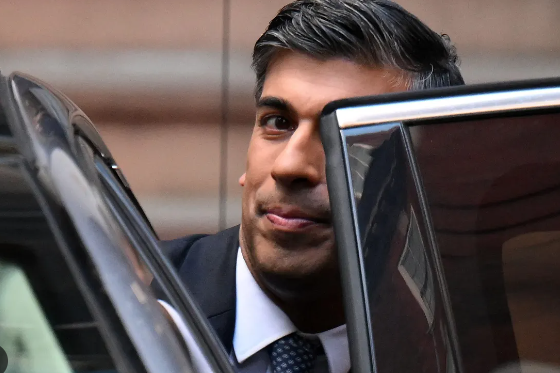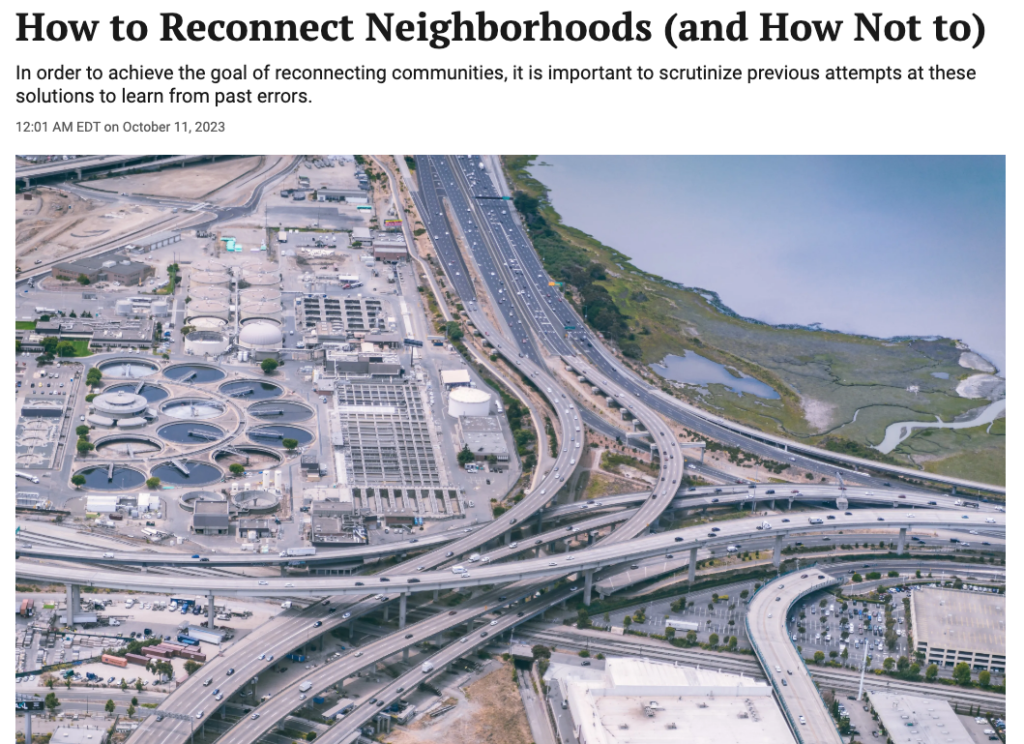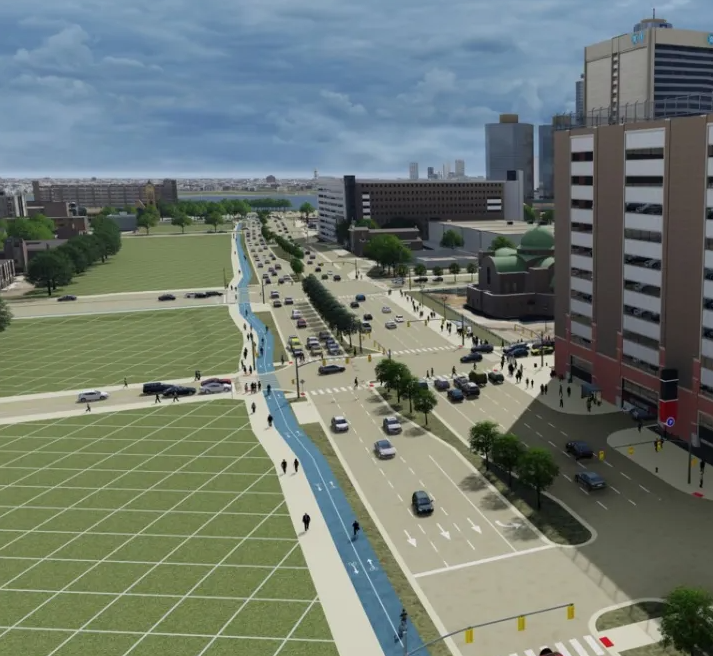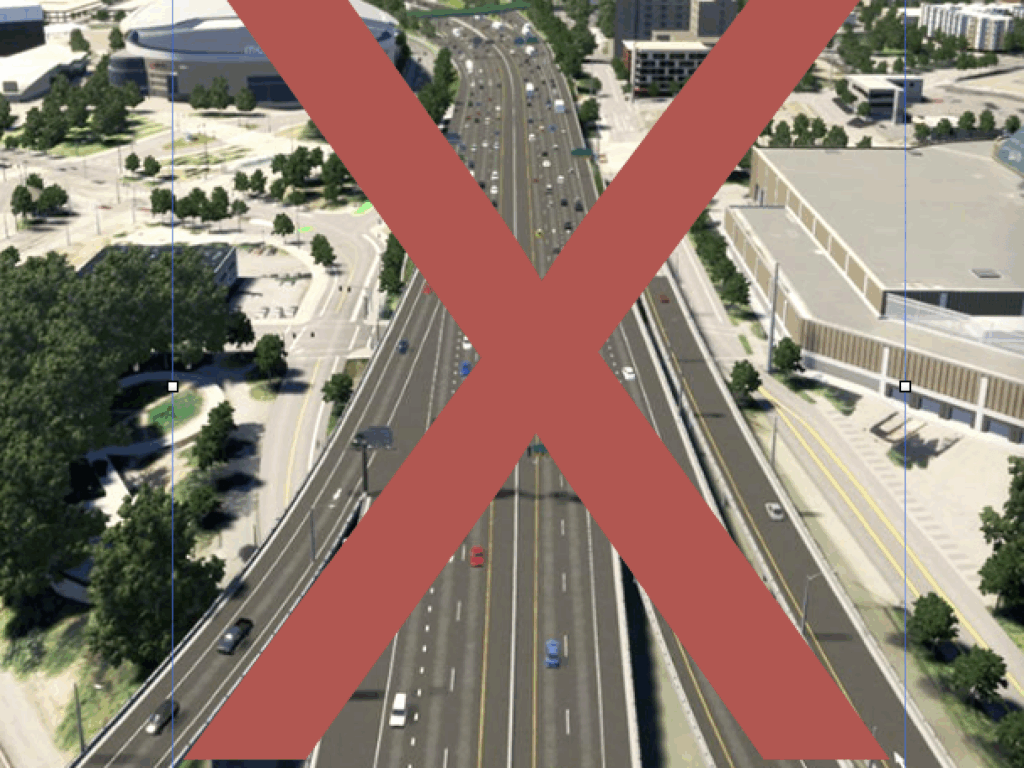What City Observatory did this week
Britain’s Caste system of transportation. In a cynical ploy to revive the Conservative Party’s flagging electoral hopes, Prime Minister Rishi Sunak has engaged in some blatant pro-motorist posturing.
Saying that drivers “feel under attack” Sunak has declared that Britain is “a nation of drivers.” Sunak’s claim highlights what we’ve long argued at City Observatory: that in a nation of drivers, those who walk, cycle and take transit are effectively members of a lower caste, not full citizens. As egregious as Sunak’s claims about “a nation of drivers” are, they may serve the useful purpose of laying bare the hitherto unspoken discrimination embedded in current transportation policies.
Must Read
The Empire Strikes Back: How state highway departments are co-opting and perverting the “Reconnecting Communities” program. Much has been made of the $1 billion included in the Bipartisan Infrastructure Law to mitigate the damage done to urban neighborhoods by freeway construction. The $1 billion was effectively a pittance, especially compared with the continued generous funding for even more destructive highway projects, but even that small amount of funding is being twisted by state highway departments to create projects that double-down on harmful roadways rather than actually restoring damaged neighborhoods.
Writing at Streetsblog, Adam Paul Susaneck, author of Segregation by Design—which publishes compelling illustrations of how freeway construction decimated cities across the country—points out that “freeway covers” are routinely used as cover—for widening highways.
While putting a highway underground can seem an intuitive solution to reconnect the communities above, because these same mid-century standards are still embedded in nationwide transportation policy, the reality is that such projects often become, at best, a form of “greenwashing” and, at worst, Trojan horses for further highway expansion.
In Portland, Brooklyn, Austin, and St. Paul, highway departments use covers as a mask for highway widening. Expanding highway capacity, even when its partially concealed by a few blocks of freeway cover, fails to fix the devastatingly negative effects of highways on the urban landscape: It’s the flow of cars and pollution that devastates communities, not the insufficiently aesthetic appearance of uncovered freeways.
In Michigan, that state’s department of transportation is looking to turn a little-used one mile stretch of I-375 into a boulevard, but in the process is creating a roadway that will be even more hostile to pedestrians–and as divisive for the community–as the depressed freeway it replaces. The boulevard will be six to nine lanes wide, with a median barrier—included because pedestrians won’t be allowed to cross both directions during one signal phase, and to protect traffic flow and shorten travel times. As local resident and architecture professor Bryan Boyer notes,
“Instead of reconnecting communities, it is going to make a bigger gulf between downtown and the eastside. Instead of being safer for people who are walking or biking, particularly in the east-west direction, it’s going to be more dangerous.”
Anika Goss of Detroit Future City argues:
“It would be disingenuous for us to build a freeway over the previous freeway and call it reparative because we put up a historical marker.”
MDOT officials respond to these criticisms with the frequently used dodge that the project is “only 30 percent designed”—which seems to imply that there’s plenty of opportunity to change things. But the reality is that the agency is locked in on a six- to nine-lane roadway, and the agency is prioritizing traffic flow over all other considerations.
Speaking out on behalf of a whistleblower. As we reported last week, the California Department of Transportation has demoted Deputy DirectorJeanie Ward-Waller after she filed a whistle-blower complaint against the agency for violating its own rules and state law to fund highway widening projects. For too long, state highway departments have proffered greenwashed policies, while cynically pursuing projects that simply lead to more traffic and pollution. This case is an opportunity to call out their duplicity. America Walks has started a nationwide petition drive to challenge these egregious actions and support a moratorium on highway expansions in California .
A coalition of allies in California is now calling for Governor Newsom to investigate this malpractice and to pause highway expansion projects throughout the state until it is completed. The coalition has asked for national support in convincing Governor Newsom this is the right thing to do
You can sign on at this link.




